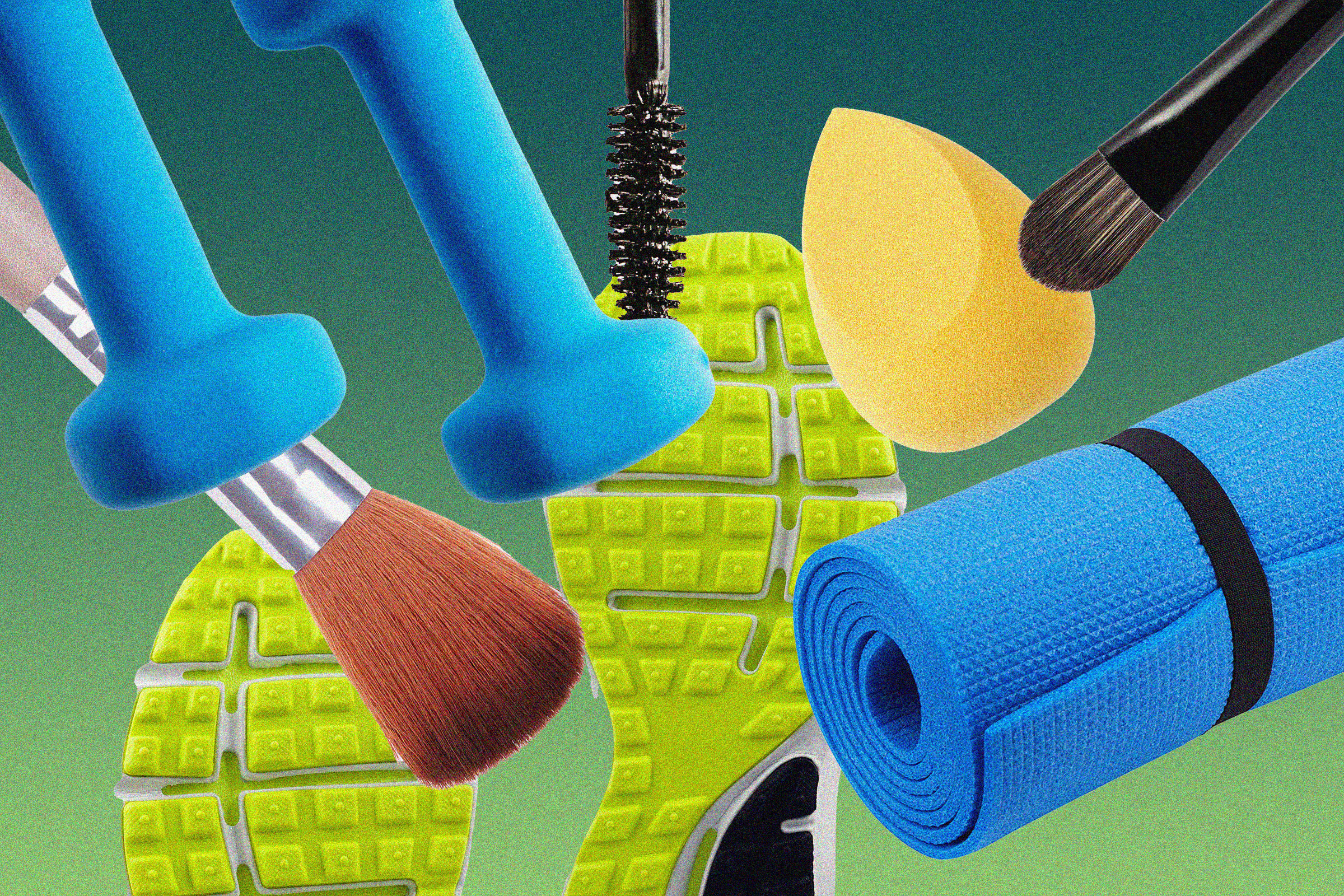
Working out is great for your skin. It increases blood flow to all your organs—skin included—delivering oxygen and nutrients along with it. But if you exercise in a full face of makeup, you might be hurting your skin health, not helping it.
To find out what makeup does to skin during exercise, researchers applied a drug-store-brand cream foundation to the foreheads and under-eye areas of 43 university students. They left the bottom halves of everyone's faces makeup-free. All of the students then ran on a treadmill for 20 minutes.
“Our hypothesis was that makeup can block pores partially or completely, and because pores are important for evaporation, sweating, and getting rid of debris, makeup would negatively impact skin health,” says Sukho Lee, a professor in the department of counseling, health, and kinesiology at Texas A&M University-San Antonio and senior author of the study published in the Journal of Cosmetic Dermatology. Skin plays an important role in helping the body to regulate temperature—especially during exercise, when heart rate goes up and metabolism increases. Allowing pores to expand so that sweat can escape is just one of the ways that the skin releases excess heat from the body.
Read More: Your Brain Doesn't Want You to Exercise
Using a device that can scan the skin for moisture levels, oil amounts, and pore size, the researchers compared people's made-up and makeup-free parts of the face. Moisture levels on the makeup side were higher than those on the bare side—and though that might sound like a good thing, it actually indicates a negative effect of the foundation. “Moisture on the skin is evidence of poor evaporation, so a lot of moisture on the skin is not a good sign, since it should be evaporating,” says Lee.
People's pores were also smaller on the areas where they wore makeup, which indicates that the skin wasn’t able to open up and properly regulate moisture and remove oil and debris as it normally does, Lee says.
Sebum levels were also higher on the makeup sides compared to the non-makeup sides. Sebum is a marker of debris, dirt, and bacteria buildup on skin, which may contribute to conditions like acne. Oil levels were lower on the makeup side, but it’s not clear why, says Lee. It’s possible that the foundation was interfering with the skin’s ability to regulate its oil levels.
The findings also raise questions about other products people apply to the face, such as sunscreen, which is designed to form a barrier on the skin against UV rays. With the help of dermatologists, Lee is hoping to extend the study to include other types of foundation that contain different ingredients—such as oil-free formulations—as well as sunscreen to determine what they do to the skin during exercise.
More Must-Reads From TIME
- The 100 Most Influential People of 2024
- Coco Gauff Is Playing for Herself Now
- Scenes From Pro-Palestinian Encampments Across U.S. Universities
- 6 Compliments That Land Every Time
- If You're Dating Right Now , You're Brave: Column
- The AI That Could Heal a Divided Internet
- Fallout Is a Brilliant Model for the Future of Video Game Adaptations
- Want Weekly Recs on What to Watch, Read, and More? Sign Up for Worth Your Time
Contact us at letters@time.com